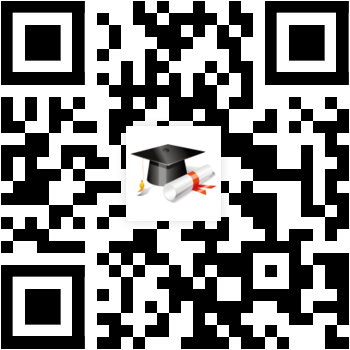2004年同等学力申硕英语全国统一考试真题
来源:在职研究生招生信息网 发布时间:2011-10-22 17:04:32
Paper One试卷一(90 minutes)
Part Ⅰ Listening Comprehension(20 minutes,15 points)(略)
Part Ⅱ Vocabulary(10 minutes,10 points)
Section A
Directions:In this section there are ten sentences,each with one word or phrase underlined. Choose the one from the four choices marked A,B,C and D that best keeps the meaning of the sentence. Then mark the corresponding letter on the ANSWER SHEET with a single line through the center.
16. Hague was elected as the Conservative Party leader partly because of his ambiguous views on Britain’s position in relation to its partners in the European Union.
A. ambitious B. obscure C. appalling D. indifferent
17. Her story shows how gentle stubbornness and an indifference to honors and fame can lead to great achievements.
A. persuasion B. determination C. devotion D. reservation
18. We have a respon3sibility to ensure our nation’s continued prosperity and the most sensible way to do this is by investment in basic scientific research.
A. effective B. efficient C. significant D. reasonable
19. All information reported to or likewise obtained by the commission is considered confidential.
A. in a similar way B. in another way
C. in a direct way D. in an unauthorized way
20. I would recommend this inn highly on account of its wonderful location.
A. as a result of B. because of
C. with regard to D. with a view to
21. Television advertisements do more than merely reflect dominant ideologies.
A. exactly B. faithfully C. repeatedly D. simply
22. The legislative provision has a great impact on the operations of the department.
A. law B. passage C. revision D. clause
23. In spite of a problem with the faulty equipment,some very useful work was accomplished.
A. imperfect B. temporary C. emergency D. reinstalled
24. Talks on climate change resumed in the German city of Bonn on July 16 to combat global warming.
A. focus on B. settle down C. fight against D. sum up
25. Bob believes that the invasion of the marketplace into the university is undermining fundamental academic values,and that we must act now to halt this decline.
A. lace B. plug C. cease D. digest
Section B
Directions:In this section,there are ten incomplete sentences. For each sentence there are four choices marked A,B,C and D. Choose the one that best completes the sentence. Then mark the corresponding letter on the ANSWER SHEET with a single line through the center.
26. The local people could hardly think of any good way to______poverty they had endured.
A. shake off B. ward off C. put off D. take off
27. The three branches of government—the legislative,the executive,and the______—restrain and stabilize one another through their separated functions.
A. lawful B. just C. judicial D. legal
28. From observers’ estimates of the brightness of the fireball,he______that the body in the space was between 40 feet and 260 feet in diameter.
A. deduced B. reduced C. induced D. produced
29. They provide a means of keeping______of the thousands of journal papers that are published monthly or quarterly.
A. track B. contact C. relation D. steps
30. You can use the Course Calendar to help______your students of important dates in the course,such as test dates.
A. warn B. remind C. convince D. deprive
31. Among picture books for 4—8-year-olds,several outstanding works appeared that combined original stories with______illustrations.
A. imaginable B. imaginative C. imaging D. imageless
32. A survey of more than 1000 philosophers,teachers and students by the authoritative Philosophers’ Magazine placed Charles Darwin’s The Origin of______as the third most important work.
A. Sperms B. Species C. Spectrums D. Specimens
33. As skies fill with millions of migrating birds,European scientists say the seasonal miracle appears to depend on a seeming______:The fatter the bird,the more efficiently it flies.
A. interruption B. description C. qualification D. contradiction
34. The party leader justified his subsequent reelection______that he had brought political stability and economic development to his country.
A. in the way B. by no means C. on the grounds D. to the extent
35. A leading British scholar has proposed translating Shakespeare into contemporary English ______ young audiences who are confused by jokes which are 400 years out of date.
A. in memory of B. at the cost of
C. on behalf of D. for the benefit of
Part Ⅲ Reading Comprehension(45 minutes,25 points)
Directions:There are five passages in this part. Each passage is followed by five questions or unfinished statements. For each of them there are four choices marked A,B,C and D. Choose the best answer and mark the corresponding letter on the ANSWER SHEET with a single line through the center.
Passage One
Children live in a world in which science has tremendous importance. During their lifetimes it will affect them more and more. In time,many of them will work at jobs that depend heavily on science. As voters,they will have a voice in making many decisions that involve science—for example,concerning energy sources,pollution control,highway safety,wilderness conservation,and population growth. As taxpayers they will pay for scientific research and exploration. And,as consumers,they will be bombarded(受到轰击)by advertising,much of which is said to be based on science.
Therefore,it is important that children,the citizens of the future,become functionally acquainted with science—with the process and spirit of science,as well as with its facts and principles. Fortunately,science has a natural appeal for youngsters. They can relate it to so many things that they encounter—flashlights,tools,echoes,and rainbows.
Besides,science is an excellent medium for teaching far more than content. It can help pupils learn to think logically,to organize and analyse ideas. It can provide practice in communication skills and mathematics. In fact,there is no area of the curriculum to which science cannot contribute,whether it is geography,history,language arts,music or art!
Above all,good science teaching leads to what might be called a“scientific attitude”.Those who possess it seek answers through observing,experimenting,and reasoning,rather than blindly accepting the pronouncements of others. They weigh evidence carefully and reach conclusions with caution. While respecting the opinions of others,they expect honesty,accuracy,and objectivity are on guard against hasty judgments and sweeping generalizations. All children should be developing this approach to solving problems,but it cannot be expected to appear automatically with the mere acquisition of information. Continual practice,through guided participation,is needed.
36. One of the reasons why science is important for children is that many of them will .
A. work in scientific research institutions
B. work at jobs closely related to science
C. make the final decision in matters concerning science
D. be fund-raisers for scientific research and exploration
37. There is no doubt that children like learning science because .
A. science is linked with many of the things they meet
B. science is a very easy subject for them to learn
C. they encounter the facts and principles of science daily
D. they are familiar with the process and spirit of science
38. Pupils can learn logical thinking while .
A. practicing communication skills B. studying geography
C. taking art courses D. learning science
39. People with a scientific attitude .
A. are ready to accept the pronouncements of others
B. tend to reach conclusions with certainty
C. are aware that others are likely to make hasty judgments
D. seek truth through observation ,experimentation and reasoning
40. In the passage the writer seems to .
A. prove that science is a successful course in school
B. point out that science as a course is now poorly taught in school
C. suggest that science should be included in the school curriculum
D. predict that children who learn science will be good scientists
Passage Two
My surprise over the past few winters has been the personality transformation my parents go through around mid-December as they change from Dad and Mom into Grandpa and Grandma. Yes,they become grandparents and are completely different from the people I know the other eleven and a half months of the year.
The first sign of my parents’ change is the delight they take in visiting toy and children’s clothing stores. These two people,who usually dislike anything having to do with shopping malls,become crazy consumers. While they tell me to budget my money and shop wisely,they are buying up every doll and dump truck in sight. And this is only the beginning of the holidays!
When my brother’s children arrive,Grandpa and Grandma come into full form. First they throw out all ideas about a balanced diet for the grandkids. While we were raised in a house where everyone had to take two bites of corn,beets(甜菜),or liver(foods that appeared quite often on our table despite constant complaining),the grandchildren never have to eat anything that does not appeal to them. Grandma carries chocolate in her pockets to bribe(贿赂)the littlest ones into following her around the house,while Grandpa offers“surprises”of candy and cake to them all day long. Boxes of chocolate-pie disappear while the whole-wheat bread get hard and stale. The kids love all the sweets,and when the sugar raises their energy levels,Grandma and Grandpa can always decide to leave and do a bit more shopping or go to bed while my brother and sister-in-law try to deal with their highly active kids.
Once the grandchildren have arrived,Grandma and Grandpa also seem to forget all of the responsibility lectures I so often hear in my daily life. If Mickey screams at his sister during dinner,he is“developing his own personality”;if Nancy breaks Grandma’s mirror,she is“just a curious child.”But,if I track mud into the house while helping to unload groceries,I become“careless”;if I scold one of the grandkids for tearing pages out of my textbook,I am “impatient”. If Paula talks back to her mother,Grandma and Grandpa smile at her spirit. If I say one word about all of this excessive love,Mom and Dad reappear to have a talk with me about petty jealousies.
41. As regards his parents’ shopping for the grandchildren,the author .
A. feels jealous B. feels amazed
C. thinks it unnecessary D. thinks it annoying
42. What happens after the kids have had all the sweets?
A. They get highly energetic. B. They quiet down.
C. They want more sweets. D. They go to bed.
43. Which of the following is NOT true of the visiting children?
A. They behave very well. B. They like chocolate very much.
C. They receive toys from their grandparents. D. They are having a lot of fun.
44. It can be inferred from the passage that when the author was a child,he .
A. liked the foods he had B. got a lot of pocket money
C. was spoiled by his parents D. was scolded if he misbehaved
45. “Personality transformation”in the author’s parents means that they .
A. have turned into loving parents
B. have become strict parents
C. no longer care for the author
D. used to believe in discipline for children
Passage Three
Diego Chiapello,legally blind since birth,isn’t one of Italy’s famous“mama’s boys”who live with their parents into adulthood. The 27-year-old lives alone in Milan,works as a network administrator,loves diving and dreams of sailing across the Atlantic with a sight-impaired(有视力障碍的)crew.
Obviously,he’s not your average disabled person—but especially so in Italy. The country has more barriers to integration than almost anywhere else on the Continent:among European countries,Italy ranks third from the bottom in accessibility for the disabled,ahead of only Greece and Portugal,People who use wheelchairs,especially,find it difficult to navigate the country’s cobblestone(鹅卵石)streets,ride buses or visit restaurants,shops and museums. Less than a quarter of Italy’s disabled hold jobs,compared with 47 percent for Europe.
But the biggest obstacle for the country’s physically challenged may,in fact,be the fabled Italian family. Because of the social defect that still attaches to disabilities,“they tend to keep disabled people at home”and out of public view,explains Giovanni Marri,head of an employment training center in Milan that caters to the handicapped. Thus while 15 percent of the country’s families include a disabled person,according to surveys,only 2 percent of Italians report going to school with a disabled person and only 4 percent work with one.
Italians are beginning to recognize the problem. Over the past decade,the government has passed laws targeting everything from workplace discrimination to accessibility requirements. A recent study by the European Union found that 85 percent of Italians admit that public transportation and infrastructure(基础设施)are inadequate for the handicapped,and 97 percent say action is needed. But the biggest barrier is psychological.“Italian companies are afraid of hiring disabled people,”says Chiapello. The only way to alter that,he says,is for Italy’s disabled to do what he did—get out of the house and demand change.
46. Which of the following words best describes“mama’s boys”?
A. Ordinary. B. Optimistic. C. Dependent. D. Desirable.
47. In this passage,Chiapello is cited as an example of .
A. unusual disabled Italians B. courageous blind sailors
C. typical handicapped people D. vulnerable disabled Europeans
48. In Italy,where are the disabled people most likely to be?
A. On the street. B. At home. C. In school. D. At work.
49. Italy’s general public will most probably agree that .
A. physical inadequacies are the biggest obstacle for the disabled
B. things should be done to remove the barriers against the disabled
C. workplace prejudices toward the disabled are hardly recognizable
D. disabled people should reduce the need of going to public places
50. What is the passage mainly about?
A. Italy has not done enough in aiding the disabled.
B. Italy’s disabled people should get out of their houses.
C. Italian people have been blind to troubles of the disabled.
D. Italian ways of aiding the disabled should be encouraged.
Passage Four
The average number of authors on scientific papers is sky-rocketing. That’s partly because labs are bigger,problems are more complicated,and more different subspecialties are needed. But it’s also because U S government agencies have started to promote“team science”. As physics developed in the post-World War Ⅱ era,federal funds built expensive national facilities,and these served as surfaces on which collaborations could crystallize naturally.
Yet multiple authorship—however good it maybe in other ways—presents problems for journals and for the institutions in which these authors work. For the journals,long lists of authors are hard to deal with in themselves. But those long lists give rise to more serious questions when something goes wrong with the paper. If there is research misconduct,how should the liability be allocated among the authors?If there is an honest mistake in one part of the work but not in others,how should an evaluator aim his or her review?
Various practical or impractical suggestions have emerged during the long-standing debate on this issue. One is that each author should provide,and the journal should then publish,an account of that author’s particular contribution to the work. But a different view of the problem,and perhaps of the solution,comes as we get to university committee on appointments and promotions,which is where the authorship rubber really meets the road. Half a lifetime of involvement with this process has taught me how much authorship matters. I have watched committees attempting to decode sequences of names,agonize over whether a much-cited paper was really the candidate’s work or a coauthor’s,and send back recommendations asking for more specificity about the division of responsibility.
Problems of this kind change the argument,supporting the case for asking authors to define their own roles. After all,if quality judgments about individuals are to be made on the basis of their personal contributions,then the judges better know what they did. But if questions arise about the validity of the work as a whole,whether as challenges to its conduct or as evaluations of its influence in the field,a team is a team,and the members should share the credit or the blame.
51. According to the passage,there is a tendency that scientific papers .
A. are getting more complicated
B. are dealing with bigger problems
C. are more of a product of team work
D. are focusing more on natural than on social sciences
52. One of the problems with multiple authorship is that it is hard .
A. to allocate the responsibility if the paper goes wrong
B. to decide on how much contribution each reviewer has made
C. to assign the roles that the different authors are to play
D. to correspond with the authors when the readers feel the need to
53. According to the passage,authorship is important when .
A. practical or impractical suggestions of the authors are considered
B. appointments and promotions of the authors are involved
C. evaluators need to review the publication of the authors
D. the publication of the authors has become much-cited
54. According to the passage,whether multiple authors of a paper should be taken collectively or individually depends on .
A. whether judgments are made about the paper or its authors
B. whether it is the credit or the blame that the authors need to share
C. how many authors are involved in the paper
D. where the paper has been published
55. The best title for the passage can be .
A. Writing Scientific Papers:Publish or Perish
B. Collaboration and Responsibility in Writing Scientific Papers
C. Advantages and Disadvantages of Team Science
D. Multiple Authors,Multiple Problems
Passage Five
What produces a waterproof super glue,acts like a vacuum cleaner,and even teaches scientists about gene repair?The humble little shellfish known as the mussel(贻贝)!
Mussels are found worldwide. Some live in the sea. Others inhabit freshwater streams and lakes. When you try to move a mussel from a rock,you will discover what an incredibly firm grip it has—a necessity if the mussel is to resist the sharp grab of a hungry seabird or the pounding waves of the sea. How does it manage to cling so tight?When it choose a place to set up home,it pokes its tongue-shaped foot out of its shell and presses it against a solid surface. Special glands give off a fluid mixture of proteins into a channel that runs the length of the foot. The liquid quickly hardens into a fine,elastic thread about an inch long. Then a tiny pad-like structure at the end of this thread gives off some natural glue-like substance,the mussel lifts its foot,and anchor line number one is complete. These strategically placed threads form a bundle,which ties the mussel to its new home in much the same way that ropes hold down a tent. The whole procedure takes only three or four minutes.
Imagine having a very strong glue that is non-toxic and so flexible that it can penetrate the tiniest holes and corners,sticking to any surface,even under water. Shipbuilders would welcome it for repairing vessels without the expense of dry-docking them. Auto-body workers would like a really waterproof paint that keeps the rust out. Surgeons would value a safe glue to join broken bones and to close wounds... The list of possible uses appears endless.
However,scientists are not thinking of using the mussels themselves to produce this super glue. It would take some 10000 shellfish to make just one gram of glue. So collection enough mussels to supply the world’s demand for super glue would wipe out the mussel population,many species of which are already endangered. Instead,American researchers have isolated and cloned the genes for five mussel glue proteins,and they are about to mass-produce them in the laboratory. However,the mussel is still one jump ahead. Only the mussel instinctively knows the exact blend of proteins needed for each kind of surface. Molecular biologist Frank Roberto has asked admiringly:“How are you ever going to imitate that?”
56. A mussel grips a hard surface very firmly to .
A. seal itself from being damaged by sea water
B. produce the waterproof super glue
C. protect itself from being blown away by strong wind
D. protect itself from being the food of other animals
57. The waterproof super glue originates in .
A. the mussel’s tongue-shaped foot
B. some glands in the mussel’s body
C. the thread given off by the mussel
D. the channel of the mussel’s foot
58. To tie itself safely to a new home,a mussel must .
A. produce a thread to anchor to the hard surface
B. draw air and water from its pad-like structure
C. hold down a tent as human beings do
D. place many anchor lines strategically
59. Scientists are not thinking of using mussels to produce the super glue mainly because of .
A. the possible mass-production of the super glue
B. their concern about the cost of collecting mussels
C. their concern about the extinction of the species
D. the world’s limited demand for the super glue
60. The main idea of this passage is that .
A. mussels can be used to produce super glue
B. mussels are much smarter than we think
C. it is important to protect mussels
D. mussels have an amazing power useful to man
Part Ⅳ Cloze(10 minutes,10 points)
Directions:In this part,there is a passage with twenty blanks. For each blank there are four choices marked A,B,C and D. Choose the best answer for each blank and mark the corresponding letter on your ANSWER SHEET with a single line through the center.
In recent years a new farming revolution has begun,one that involves the 61 of life at a fundamental level—the gene. The study of genetics has 62 a new industry called biotechnology. As the name suggest,it 63 biology and modern technology through such techniques as genetic engineering. Some of the new biotech companies specialize in agriculture and are working feverishly to 64 seeds that give a high yield,that 65 diseases,drought and frost,and that reduce the need for 66 chemicals. If such goals could be achieved,it would be most 67 . But some have raised concerns about genetically engineered crops.
In nature,genetic diversity is created within certain 68 . A rose can be crossed with a different kind of rose,but a rose will never cross with a potato. Genetic engineering, 69 usually involves taking genes from one species and inserting them into another 70 to transfer a desired characteristic. This could mean,for example,selecting a gene which leads to the production of a chemical with anti-freeze 71 from an artic fish,and inserting it into a potato or strawberry to make it frost-resistant. 72 ,then,biotechnology allows humans to
73 the genetic walls that separate species.
Like the green revolution, 74 some call the gene revolution contributes to the problem of genetic uniformity—some say even more so 75 geneticists can employ techniques such as cloning and 76 culture(培养),processes that produce perfectly 77 copies. Concerns about the erosion of biodiversity,therefore,remain. Genetically altered plants,however,raise new 78 ,such as the effects that they may have on us and the environment.“We are flying blindly into a new 79 of agricultural biotechnology with high hopes,few constraints,and little idea of the potential 80 ,”said science writer Jeremy Rifkin.
61. A. manufacture B. management C. manipulation D. maturity
62. A. got along with B. lived up to C. come up with D. given rise to
63. A. blends B. breeds C. broods D. blasts
64. A. hatch B. patent C. duplicate D. train
65. A. restrict B. retrieve C. reverse D. resist
66. A. hazardous B. hydraulic C. hostile D. harmless
67. A. surprising B. disappointing C. beneficial D. extreme
68. A. lines B. ages C. space D. limits
69. A. after all B. on the other hand C. in any case D. as a result
70. A. in an attempt B. in no case C. to the point D. with regard
71. A. quality B. quantity C. priority D. property
72. A. In advance B. In part C. In essence D. In return
73. A. breach B. blaze C. brake D. brand
74. A. where B. as C. what D. so
75. A. that B. because C. if D. when
76. A. skin B. muscle C. organ D. tissue
77. A. resembling B. identical C. similar D. alike
78. A. difficulties B. height C. issues D. goals
79. A. spot B. scheme C. deadline D. era
80. A. outcomes B. mystery C. navigation D. destination
Paper Two试卷二(60 minutes)
Part Ⅰ Error Detection(5 minutes,5 points)
Directions:Each of the following sentences has four underlined parts marked A,B,C and D. Identify the part of the sentence that is incorrect. Then,write down the corresponding letter and,with out altering the meaning of the sentence,put the correction on the ANSWER SHEET.
81. The farmer knows something that the whole civilized mankind seems to have forgotten,
A B C
namely,when the resources of life on our planet are not inexhaustible.
D
82. Unable to see their business as a separate entity,many people fail to make a distinction
A B
between their company and them.
C D
83. As I looked at the carpet,I wished that it could speak,since it must witness many interesting
A B C
events in the past decade.
D
84. Twenty years in prison are a ridiculously harsh penalty for an action that was,after all,agreed
A B C
upon by both people involved.
D
85. The clever method was paid attention by very few technicians until the early 1970s.
A B C D
86. The world’s remained tropical forests are being destroyed so fast that,at current trends,by the
A B C
middle of this century,only the most inaccessible will remain.
D
87. They are newcomers and don’t realize what takes it to start and run a business here.
A B C D
88. I live in an apartment where you don’t have any sun and so can’t even grow anything in a
A B C D
flower pot.
89. The reason why I love watching Tony surf is because he is so graceful and beautiful when he
A B C D
surfs.
90. Hardly would he arrive at his office when his phone calls came in rapid succession.
A B C D
Part Ⅱ Translation(35 minutes,20 points)
Section A
Directions:Translate the following passage into Chinese. Write your translation on the ANSWER SHEET.
Another kind of distinction that can be made among works of art is whether they were intended as objects to be looked at or to be used. The fine arts,such as painting and sculpture,involve the production of works to be seen and experienced on an abstract level. Pieces of fine art may evoke emotional or spiritual responses in us. Those who love the fine arts feel that these responses are very valuable,for they expand our awareness of the great richness of life itself.
Section B
Directions:Translate the following paragraph into English. Write your translation on the ANSWER SHEET.
在17和18世纪,中国的艺术、建筑学以及哲学,在西方很受欣赏。此外,中国的丝绸、茶叶和瓷器(porcelain)在西方也备受欢迎,并在一定程度上改变了许多西方人的生活方式。进入20世纪后期,西方人再一次转向中国文化。他们除了喜欢中国菜肴外,还学习汉语,尝试中医药,练习中国武术,观看功夫电影。
Part Ⅲ Guided Writing(25 minutes,15 points)
Directions:Read the story in Chinese below,and then write a composition of no less than 150 words under the title of“The Goal of Life”. Your composition should be based on the story and the following outline:
1. What have you learned from the story?
2. What is the goal of your life?If you have achieved the goal of your life,what would you do?
目 标
在英国有一位残疾青年,他双腿走起路来很困难,却凭着坚强的信念和毅力创造了一次又一次的壮举:他19岁时登上了世界最高峰珠穆朗玛峰;21岁时登上了阿尔卑斯山;22岁时登上了乞力马扎罗山。28岁前他登上了世界上所有著名的高山。然而,就在28岁这一年他自杀了。原来在他11岁时,他父母在攀登乞力马扎罗山时不幸遭遇雪崩双双遇难。他的父母在临行前给他留下了遗嘱,希望他能像父母一样,登上世界上所有著名的高山。这位残疾青年把父母的遗嘱作为他人生奋斗的目标,当实现全部目标的时候,他感到前所未有的无奈和绝望。他留下遗言:“如今,功成名就的我感到无事可做了,我没有了新的目标……”





















